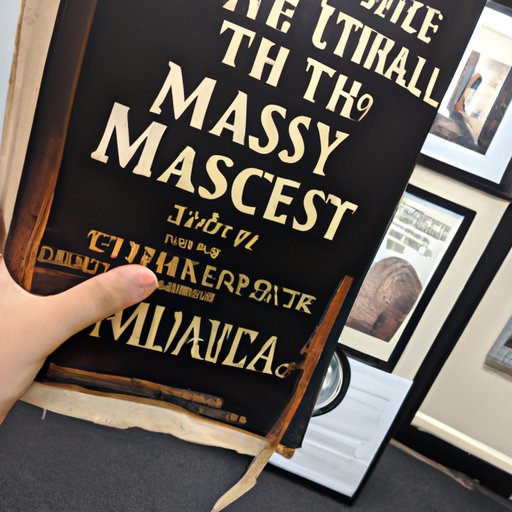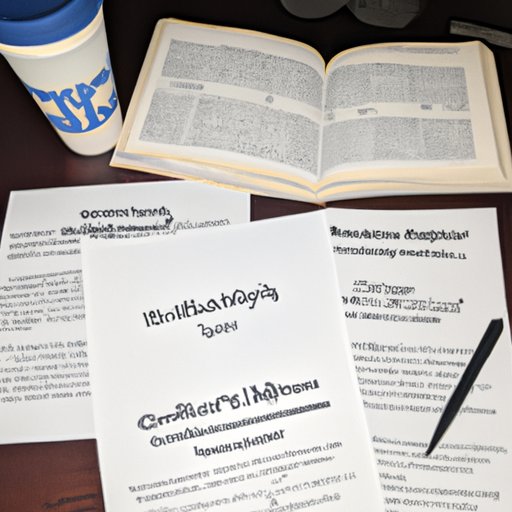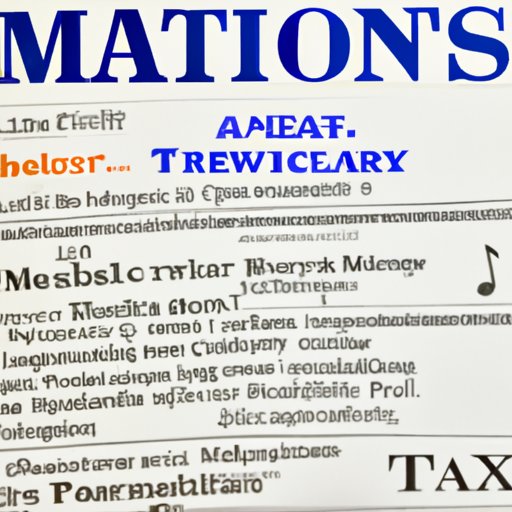Introduction
When it comes to live theatrical performances, there are two distinct genres that are often confused for one another: musicals and plays. While these two types of performances may share some similarities, such as having actors, sets, costumes and stories, they also differ in many ways. So what exactly is the difference between a musical and a play?
At its core, a musical is a type of theatrical performance that combines singing, dancing, and acting with a plot and characters. Musicals often have a score or soundtrack that is composed of original songs and music. A play, on the other hand, is a type of theatrical performance that relies solely on dialogue and action to tell a story.
The purpose of this article is to explore the key differences between musicals and plays, as well as their commonalities. We will examine the history of both genres, their characters and storylines, the role of music and dialogue, the production elements, and their impact on society.
Analyzing the Differences Between Musicals and Plays
There are several key differences between musicals and plays that set them apart from one another. Let’s take a closer look at each of these elements.
Characterization
In terms of characterization, musicals tend to focus more on archetypes and stereotypes than plays do. This is because musicals rely heavily on music and song as a way to drive the narrative forward and move the plot along. As a result, characters in musicals are often over-the-top and larger-than-life. In contrast, plays tend to focus more on character development and complexity. Characters in plays are usually more realistic and relatable, as the story is driven by dialogue and action rather than music and song.
Storylines
Musicals and plays also differ in terms of their storylines. Musicals typically have a more linear structure, as the plot is often propelled forward by music and song. The story usually follows a straightforward path from beginning to end, with few twists or turns. Plays, on the other hand, often have a more complex structure. The story is driven by dialogue and action, and can contain multiple subplots and unexpected plot twists.
Music and Dialogue
The most obvious difference between musicals and plays is the use of music and dialogue. Musical numbers are an integral part of any musical, as they provide the audience with insight into the characters and propel the story forward. Dialogues, on the other hand, are the main source of information in a play. Through dialogue, characters can express their feelings and thoughts, reveal secrets, and advance the plot.

Exploring the History of Musicals and Plays
The origins of both musicals and plays can be traced back centuries. Musicals began to emerge in the late 19th century, when composers such as Gilbert and Sullivan began writing operettas. These early musicals were lighthearted and humorous, and featured a mix of music, comedy, and drama. Plays, however, have been around for much longer. Ancient Greek tragedies, such as Oedipus Rex, are considered to be some of the earliest examples of plays.
Over the years, both musicals and plays have evolved and changed. Musicals have become increasingly popular, with the emergence of hit Broadway shows such as Les Miserables and Hamilton. Plays, too, have seen a resurgence in popularity in recent years, thanks to the work of contemporary playwrights such as August Wilson and Tony Kushner.

Examining the Characters and Storylines in Musicals and Plays
One of the key differences between musicals and plays is the characters and storylines. Musicals often feature larger-than-life characters and plots that are driven by music and song. Popular musicals such as The Lion King and Hamilton feature epic stories about love, loss, and redemption. Plays, on the other hand, often feature more realistic characters and stories. Notable examples include Arthur Miller’s Death of a Salesman and Tennessee Williams’ A Streetcar Named Desire.
Despite their differences, musicals and plays often share common themes. Both genres often explore issues such as love, loss, identity, and belonging. They also examine the impacts of social and political issues on individuals and societies.
Comparing Music and Dialogue in Musicals and Plays
Another key difference between musicals and plays is the use of music and dialogue. Music is an integral part of any musical, as it provides the audience with insight into the characters and their emotions. Songs can also help to propel the plot forward and create tension. In plays, however, dialogue is the main source of information. Through dialogue, characters can express their feelings and thoughts, reveal secrets, and advance the plot.
The role of music and dialogue in musicals and plays has a significant impact on the overall tone and feel of the performance. Musical numbers can add energy and excitement to a show, while dialogue can bring a sense of realism and emotion.

Investigating the Popularity of Musicals and Plays
Musicals and plays have long been popular forms of entertainment. Musicals have been commercial successes for decades, with blockbuster hits such as The Phantom of the Opera and Wicked making millions in ticket sales. Plays, too, have had their fair share of success. Notable examples include David Mamet’s Glengarry Glen Ross and Tom Stoppard’s Rosencrantz and Guildenstern Are Dead.
Musicals and plays have also been critically acclaimed. Musicals such as Dear Evan Hansen and Hamilton have won numerous awards, while plays such as Angels in America and August: Osage County have received glowing reviews from critics.
Looking at the Production Elements of Musicals and Plays
The production elements of musicals and plays are also quite different. Musicals typically require more elaborate costumes and sets, as the music and choreography demand more attention from the audience. Plays, on the other hand, often require more minimalistic costumes and sets, as the dialogue and action take center stage. Lighting is also used differently in musicals and plays. In musicals, lighting is often used to create atmosphere and highlight important moments. In plays, lighting is often used to create a sense of realism and draw focus to particular scenes or characters.

Discussing the Impact of Musicals and Plays on Society
Musicals and plays have had a profound impact on society. Through their characters, stories, and themes, they have explored issues such as racism, sexism, and poverty. They have also provided audiences with a glimpse into different cultures and perspectives.
Musicals and plays have also had a significant cultural impact. From Grease to Hamilton, musicals have become part of the pop culture landscape, inspiring generations of fans. Plays, too, have had an influence on popular culture, with classic works such as Waiting for Godot becoming household names.
Conclusion
Musicals and plays are two distinct genres of live theatrical performances. While they may share some similarities, such as having actors, sets, costumes and stories, they also differ in many ways. Musicals typically feature larger-than-life characters and music-driven storylines, while plays focus more on character development and dialogue-driven narratives. Both genres have had a profound impact on society, exploring issues such as racism, sexism, and poverty. They have also had a significant cultural impact, with classic works such as Grease and Waiting for Godot becoming part of the pop culture landscape.
It is clear that both musicals and plays have a lot to offer. Whether it is a lighthearted comedy or a gripping drama, these two genres have something for everyone.
(Note: Is this article not meeting your expectations? Do you have knowledge or insights to share? Unlock new opportunities and expand your reach by joining our authors team. Click Registration to join us and share your expertise with our readers.)
